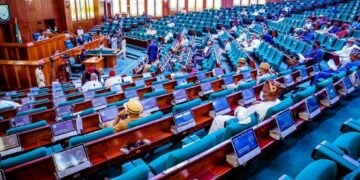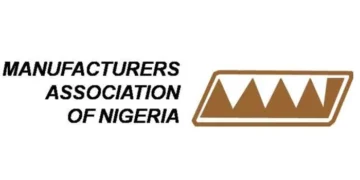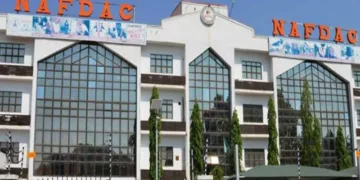Deutsche Bank has led a landmark $747 million syndicated loan to finance Phase 1 Section 1 of the Lagos-Calabar Coastal Highway project, marking Nigeria’s largest road infrastructure loan and a significant boost to the Renewed Hope Infrastructure Development Agenda.
The loan, which will fund the stretch from Victoria Island to Eleko Village (47.47km), represents the first syndicated financing of its kind for a road project in Nigeria and signals renewed global investor confidence in the country’s economic reforms and infrastructure pipeline.
In a statement issued by the Director of Information at the Federal Ministry of Finance, Mohammed Manga, Deutsche Bank is named as the Global Coordinator, Initial Mandated Lead Arranger, and Bookrunner in the syndicate of regional and international lenders. The Islamic Corporation for the Insurance of Investment and Export Credit (ICIEC) provided partial political and commercial risk insurance to support the transaction.
The financing consortium includes prominent institutions such as First Abu Dhabi Bank—which also serves as Agent across all facilities and Intercreditor Agent—African Export-Import Bank (Afrexim), the Abu Dhabi Exports Office (ADEX), the ECOWAS Bank for Investment and Development (EBID), Nexent Bank N.V. (formerly Credit Europe Bank N.V.), and Zenith Bank through its UK, Paris, and Nigeria offices.
The project is being delivered under an Engineering, Procurement, Construction + Financing (EPC+F) model awarded to Hitech Construction Company, a major Nigerian infrastructure firm. This model blends private sector investment with public sector infrastructure delivery goals, enabling fast-tracked execution while attracting more private capital into national development priorities.
Construction of Phase 1 Section 1 is already over 70 per cent completed, according to officials. The highway is being constructed using Continuously Reinforced Concrete Pavement (CRCP), known for its high durability, with a minimum expected lifespan of 50 years and minimal maintenance requirements.
Designed to serve as a vital economic artery, the Lagos-Calabar Coastal Highway is expected to facilitate trade and logistics, promote tourism, reduce transportation costs, and generate employment across the southern corridor of Nigeria. A tolling strategy is currently under development to ensure operational and financial sustainability under a concession-backed framework.
Minister of Finance and Coordinating Minister of the Economy, Wale Edun, described the transaction as a “model” for financing infrastructure sustainably and transparently. “This deal reflects the success of our macroeconomic reforms and the return of international capital to support Nigeria’s development,” he said.
According to Edun, the closing of this “market-defining” financing underscores President Bola Tinubu’s commitment to leveraging private sector participation in critical infrastructure delivery through Public-Private Partnerships (PPPs). “It signals to investors the sophistication and maturity of the Nigerian market and the Government’s commitment to the sanctity of contracts and innovative financing structures,” Edun added.
Minister of Works, David Umahi, echoed similar sentiments, stating that the financing was “a vote of confidence in Nigeria’s economic reform agenda.” He emphasised that the highway is a “strategic national asset” and said the success of this model sets a “strong precedent” for future PPP-driven infrastructure projects.
Dany Abboud, Managing Director of Hitech Construction Company Limited, lauded the partnership for demonstrating the capacity of Nigerian engineering on the global stage. “With over 70% of Phase 1 Section 1 complete, we are showing that Nigerian engineering—backed by structured international finance—can meet global standards,” he stated. He noted that the CRCP technology being deployed ensures “unmatched durability and cost-efficiency.”
Dr. Khalid Khalafalla, CEO of ICIEC, noted that ICIEC’s sovereign risk coverage has helped unlock the project’s potential. “We are proud to join the Nigerian government and our co-financiers in realizing the Lagos–Calabar Coastal Highway Project,” he said, adding that the initiative is expected to ease congestion, boost regional trade, and drive inclusive growth. He emphasized that the project will create jobs, support small and medium-sized businesses, and promote sustainable development across West Africa.
Financing for subsequent phases of the highway project is already being structured, with strong interest from both regional and global investors.
This transaction reflects Nigeria’s renewed engagement with international financial institutions and reinforces the administration’s commitment to bankable, transformative infrastructure delivery backed by bold macroeconomic reforms.





